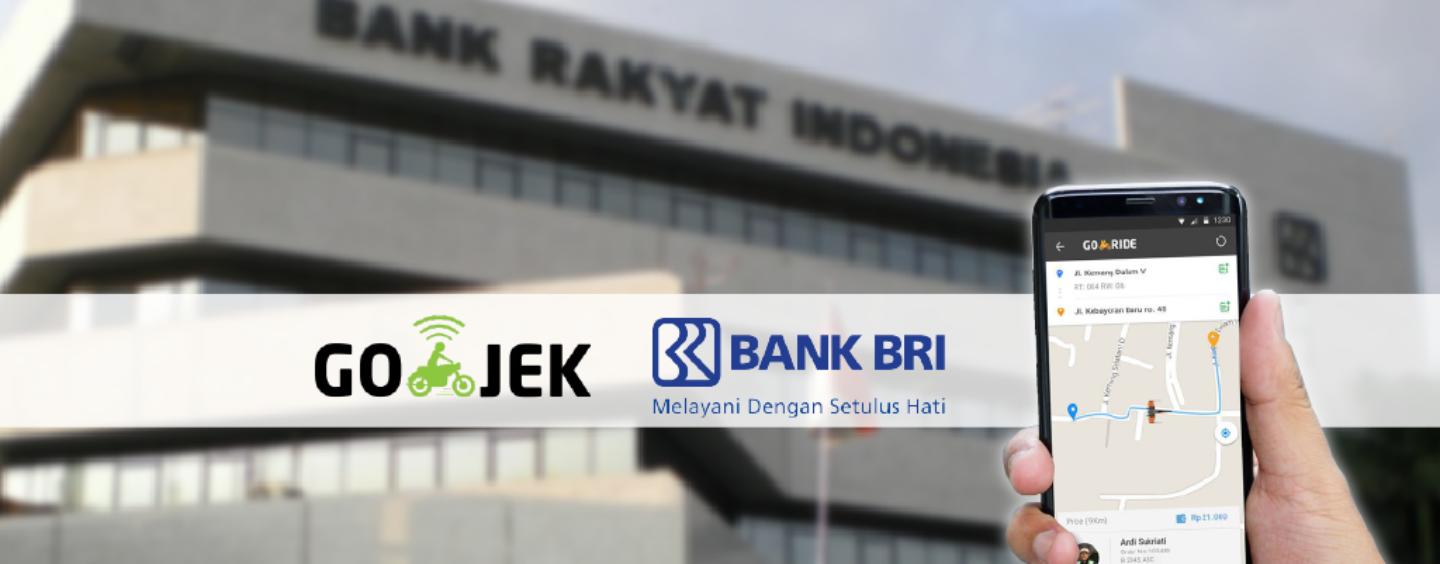
Go-Jek and Bank Rakyat Indonesia Teams Up For Financial Inclusion
by Fintech News Singapore March 12, 2018Banks in Indonesia are still hesitant to collaborate with fintech startups, some local startup founders say. At this stage, exchange between banks and fintech startups takes place in the realm of events and competitions, where the aim is to get an overview of the landscape rather than working together on innovative products.
This is especially true for startups with a small user base. However, when they’ve managed to grow to the size of a company with millions of users like Go-Jek, Indonesia’s version of Uber, but with many additional on demand-services it’s easier to open doors.
Go-Jek and Bank Rakyat Indonesia (BRI) last week announced they plan a number of features to “improve financial inclusion and financial literacy” through Go-Jek’s mobile wallet Go-Pay. BRI is one of Indonesia’s largest banks and specialises in small-scale retail clients.
The press release remains vague on the specifics of those features and when Go-Pay users can expect them to roll out. It does mention that as a first step, they are looking at things like simplified bill payment through Go-Pay for BRI clients, which might include tax payments, and access to BRI’s financial products like microloans for Go-Jek’s merchants and employees.
If the features roll out on Go-Pay soon, this could become the first such integration of banking services and mobile wallets in Indonesia. It would bring Go-Pay one step closer to becoming a multi-functional digital banking tool in the style of China’s Alipay Wallet. You can use Alipay not only to make online and offline payments, but also to get loans and invest.
Since it’s launch in 2016, Go-Pay has grown to be Indonesia’s largest mobile wallet. It works with many banks (18, according to the press release) but so far those integrations have mostly been about enabling Go-Pay credit top-ups from bank accounts.
Featured image via: Go-Jek and Wikimedia Commons







